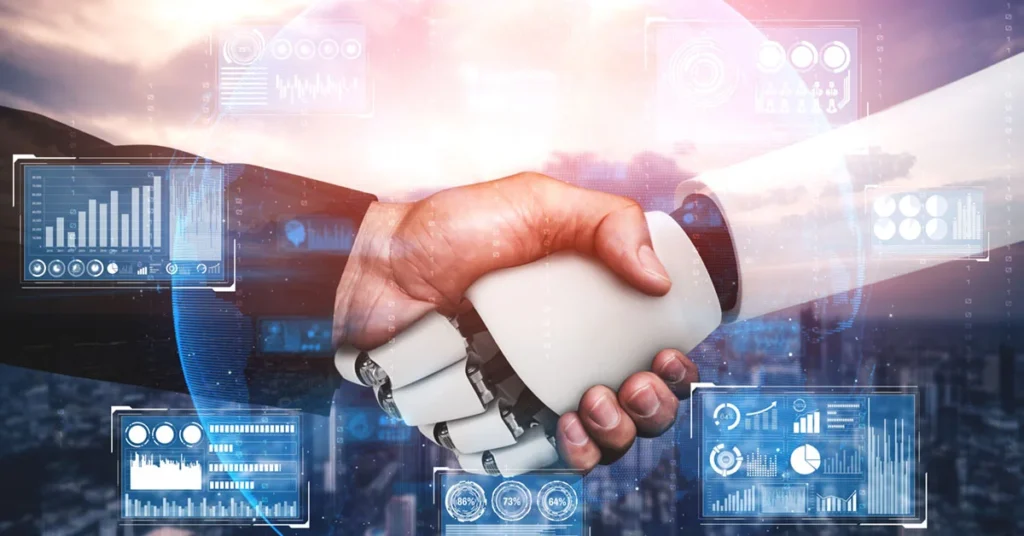
AI is the hyper-connected digital world of 2025, customers expect more than just good products—they expect personalized experiences. The era of one-size-fits-all marketing is long gone. Enter AI-driven personalization at scale—a game-changer for marketers aiming to deliver the right message, to the right person, at exactly the right time.
AI-Driven Customer Journeys
What is a Customer Journey?
A customer journey is the complete experience a customer has with a brand, from the moment they become aware of it to post-purchase interactions. This journey includes stages like:
- Awareness
- Consideration
- Decision (Purchase)
- Retention
- Advocacy
What Does “AI-Driven” Mean in This Context?
An AI-driven customer journey uses artificial intelligence to automate, personalize, and optimize every stage of a customer’s interaction with a brand. AI helps companies understand behaviors, predict needs, and deliver timely and relevant experiences at scale.
What Is Personalization at Scale?
Personalization at scale means delivering customized experiences to thousands or even millions of customers, based on their behaviors, preferences, and intent—automatically. This could range from personalized emails and dynamic website content to tailored product recommendations and real-time customer support.
Traditional personalization methods struggle to keep up. That’s where Artificial inteligence and machine learning step in.
How Artificial inteligence Powers Scalable Personalization
AI allows businesses to analyze massive volumes of customer data in real time. Here’s how it’s transforming customer journeys:
1. Behavioral Analysis
AI tools can track user behavior across websites, apps, and even offline interactions. Machine learning models then segment users dynamically, enabling marketers to understand:
- What users are looking for
- When they’re likely to convert
- What messaging or offer will work best
2. Predictive Recommendations
Platforms like Amazon or Netflix use AI to recommend products or content based on what similar users have liked. This predictive approach boosts engagement and conversions dramatically.
3. Dynamic Content Delivery
Using AI, websites and emails can serve different content to different users based on real-time data—location, browsing history, time of day, and more.
4. Conversational Artificial inteligence & Chatbots
Chatbots powered by natural language processing (NLP) deliver personalized support and product suggestions 24/7, improving customer satisfaction and reducing human workload.
Real-World Examples of Artificial inteligence-Driven Journeys
- Spotify Wrapped: Uses AI to turn listening data into a shareable, personalized annual report.
- Sephora’s Virtual Artist: Offers personalized beauty recommendations using Artificial inteligence and AR.
- Airbnb: Recommends listings and activities tailored to user preferences and behavior.
These aren’t just clever add-ons—they’re key to keeping users engaged and loyal.
Challenges to Consider
While AI opens doors, it also raises challenges:
- Data Privacy: With GDPR, CCPA, and other regulations, brands must be transparent about data usage.
- Over-Personalization: Getting too personal too fast can feel creepy to users.
- Bias in Artificial inteligence: Algorithms trained on biased data can lead to exclusion or misrepresentation.
A balance between automation, ethics, and human oversight is essential.
Best Practices for Implementing AI Personalization
- Start with Clear Goals – Define what success looks like (e.g., increased conversions, lower churn).
- Use Quality Data – Your AI is only as good as the data you feed it.
- Test and Optimize – A/B testing is still vital. Let data guide your tweaks.
- Keep the Human Touch – Use Artificial inteligenceto enhance, not replace, real human connections.
The Future of Customer Journeys
AI-powered personalization will soon move beyond screens. Think voice assistants offering personalized deals or augmented reality experiences that adapt in real time.
The future isn’t just personalized—it’s predictively personalized.
Final Thoughts
Personalization at scale is no longer a luxury—it’s a competitive necessity. AI gives marketers the tools to build deeply relevant customer experiences at every touchpoint.
Brands that can humanize Artificial inteligence-driven interactions while respecting privacy will be the ones that win customer loyalty in the long run.
Interested in implementing Artificial inteligence-powered personalization in your business? Let’s explore the best tools and strategies tailored to your industry. Drop your questions in the comments or reach out for a consultation!
